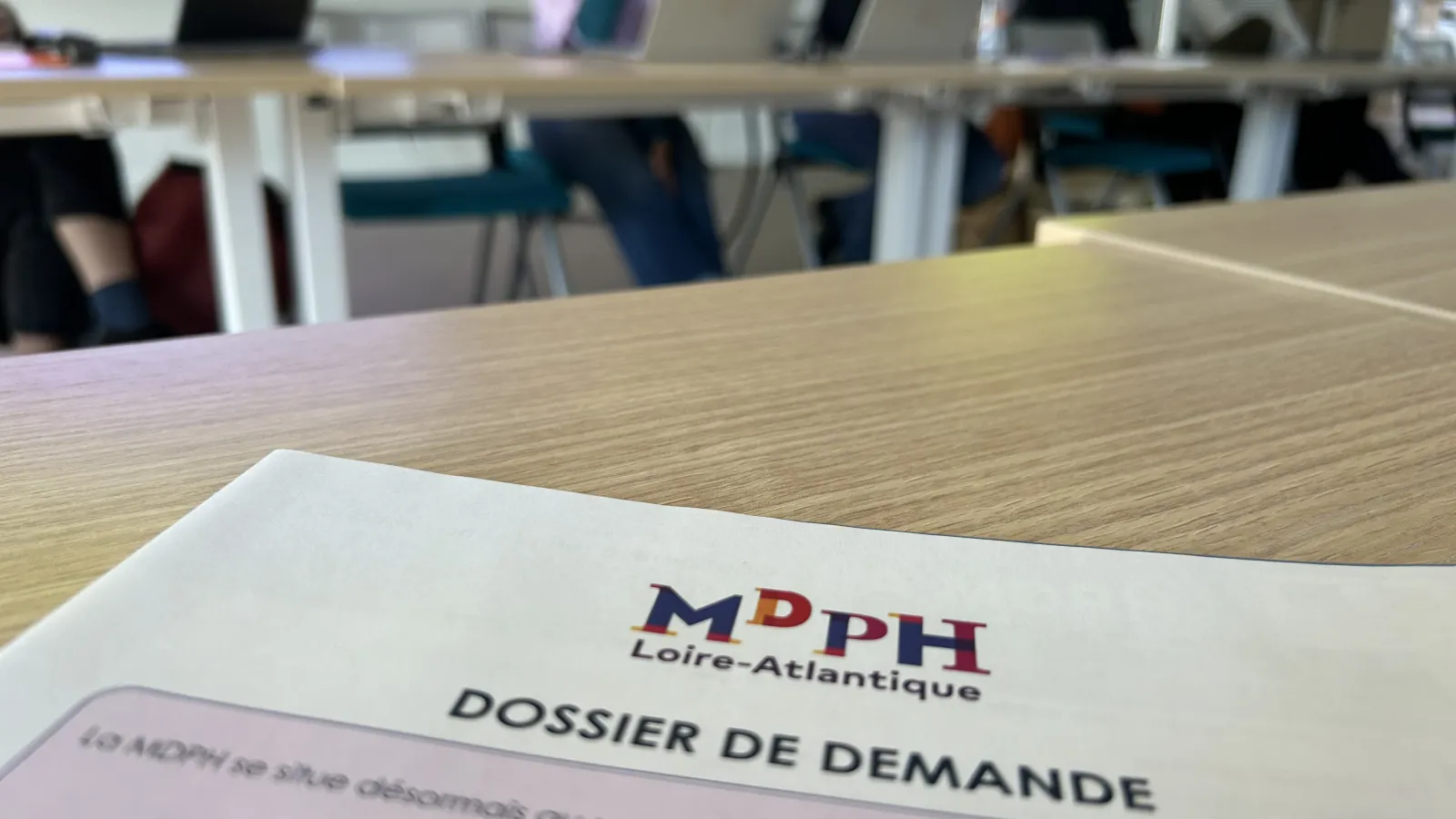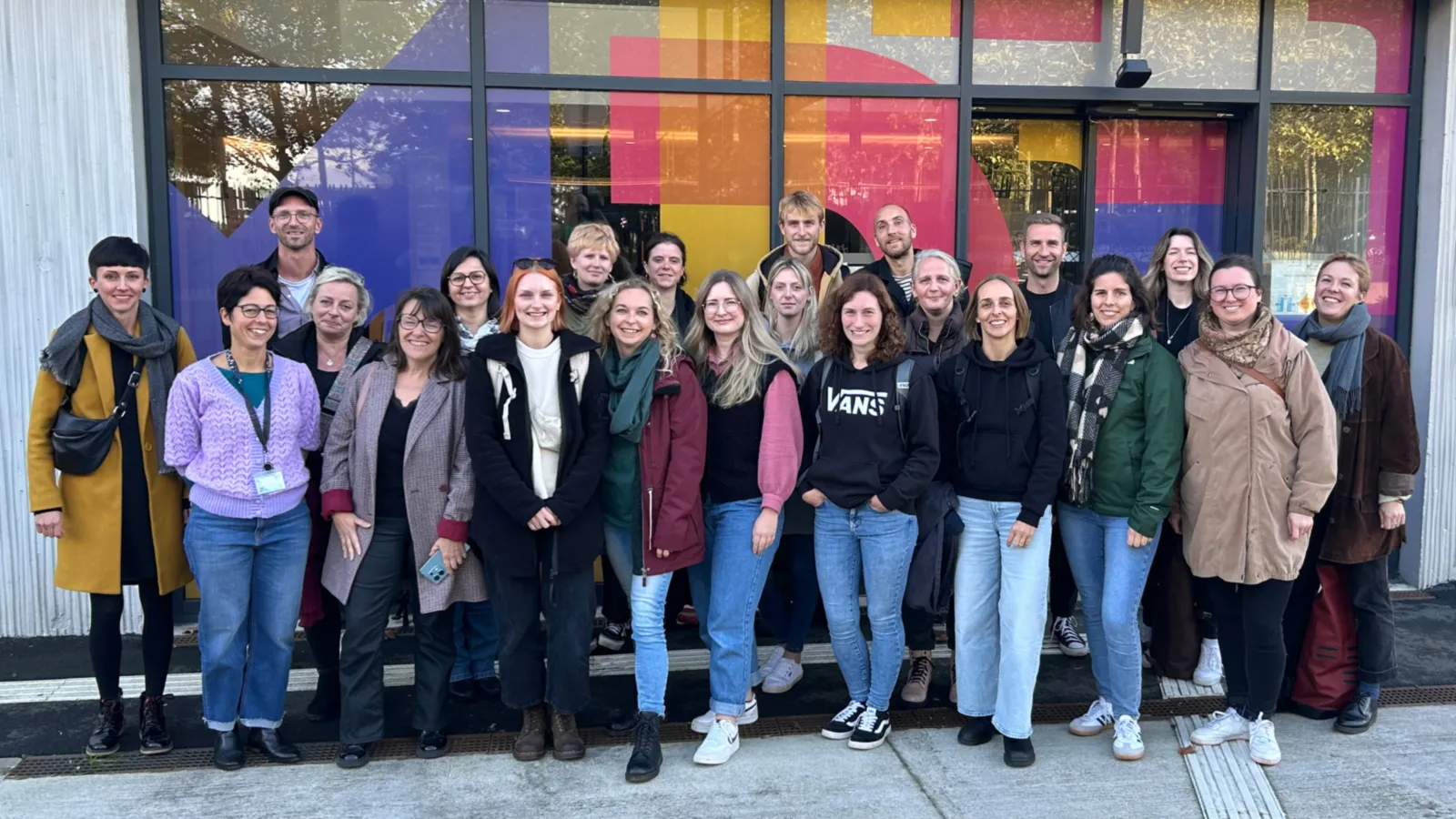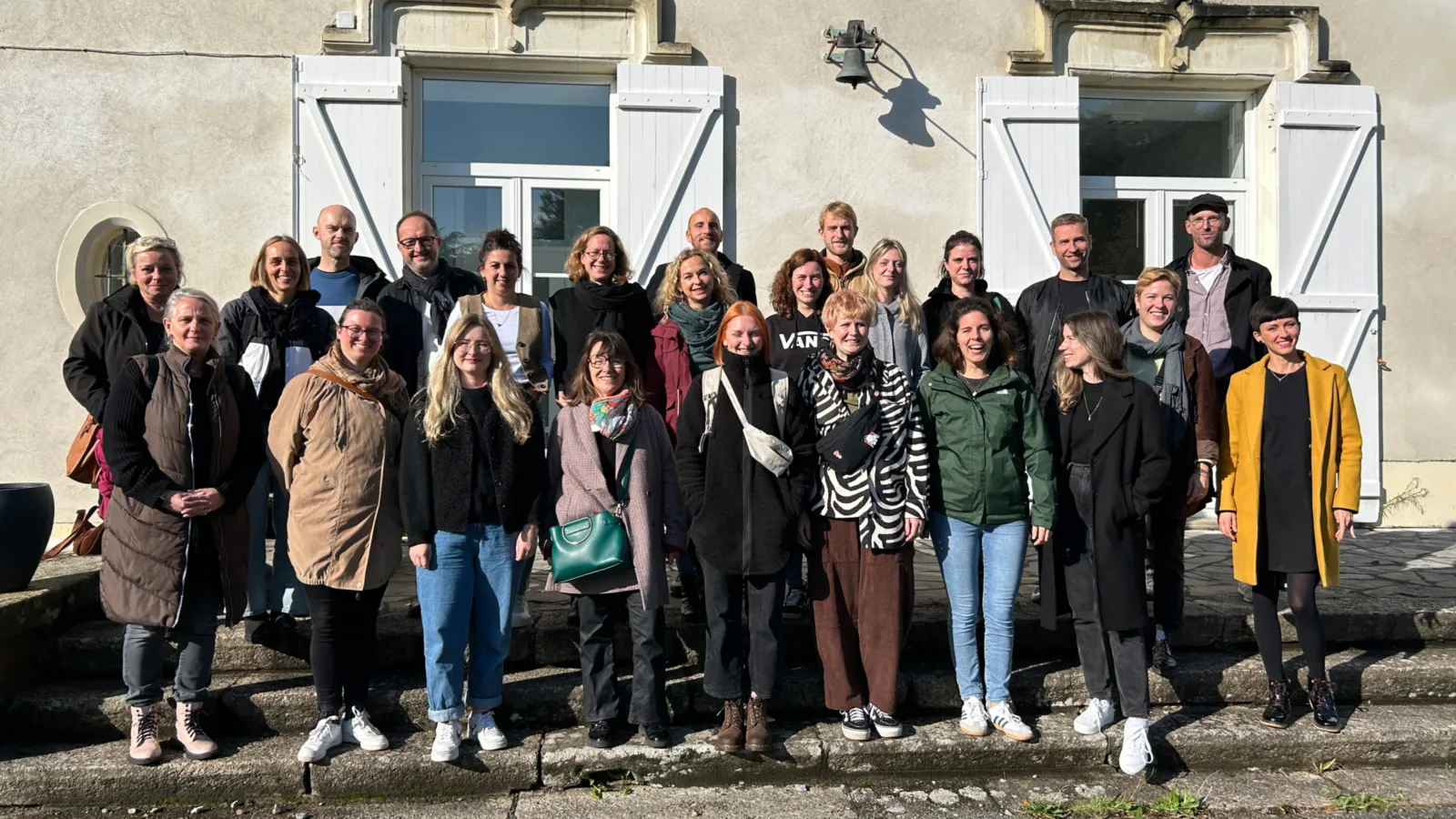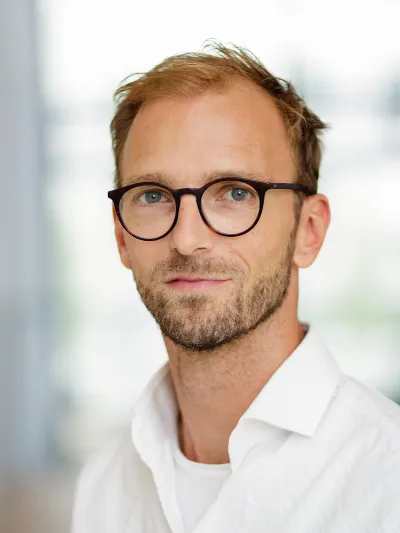Retrospective
Report on the Study Trip to Nantes for the part-time Distance Learning Programme in Social Work
From the 9th to the 12th of October 2024, students visited the city of Nantes on the French Atlantic coast and had the opportunity to get to know various institutions and social work professionals. Here they report on their impressive and insightful study trip.
A report by the authors Anne-Laure Leroy, Annett Förster, Katharina Reiber and Theres Schröder.
18 students from the BASA-online course 2022 Social Work went on a study trip to Nantes with academic assistant Michael Pifke as part of the module "P6 – Crises and Conflicts". The trip was sponsored by the Franco-German Citizens' Fund. It was an international exchange on the topic of "Conflicts and crises in social work". We focused on visiting various organisations: ADAES 44 – a provider in the field of child protection, the social counselling centre for people with disabilities MDPH (Maison Départementale pour les personnes en situation de Handicap) and Arifts (Association Régionale des Instituts de Formation en Travail Social) a training centre for social work. Not only did we get to know many different people from the respective fields of work, but we also learned a lot about organisational structures, the institutions and the system, challenges and limitations, as well as suggestions for our own work.
The intercultural exchange with professionals in France greatly enriched our learning experience and is an impressive example of how important such experiences are for social work. As students, we had the opportunity to understand different and, in many places, similar challenges and conflicts and to further develop our skills. The warm and direct contact enabled us to familiarise ourselves with and reflect on different approaches and methods of social work. We were also able to contribute our own perspectives and experiences, which made the exchange particularly valuable. Despite the intensive discussions, we were still only able to shed light on a fraction of what concerns us social workers during this short visit. We are therefore in favour of more and longer international exchange opportunities.
A central aspect of such exchange programmes is the promotion of intercultural understanding. In an increasingly globalised world, it is essential that social work professionals look beyond their own backyard and understand different cultural and political backgrounds and their influence on social problems and solutions. The exchange with colleagues from France opened up new perspectives on common and shared concerns and encouraged innovative solutions to common challenges. The exchange also helped us to develop specific key professional skills. Skills such as networking, interdisciplinary collaboration and the ability to engage in professional dialogue were strengthened as a result. These skills are not only important for the individual development of us social workers, but also for improving the quality of social services as a whole.
The culinary highlights, such as galettes and croissants, were a pleasant side effect of our trip. More important was the opportunity to combine theoretical knowledge with practical experience. In the end, we all agreed that there is more that unites us than divides us: the will to make a positive change unites us all – regardless of political differences or cultural differences. One participant put it in a nutshell: "We have many similar challenges, but many different solutions; that's what makes the exchange so exciting." Exchange programmes should therefore not only be encouraged, but also considered an integral part of social work training. They offer a valuable opportunity for personal and professional development and help to create a supportive community of social workers who are willing to work together to find solutions to complex social work issues.




